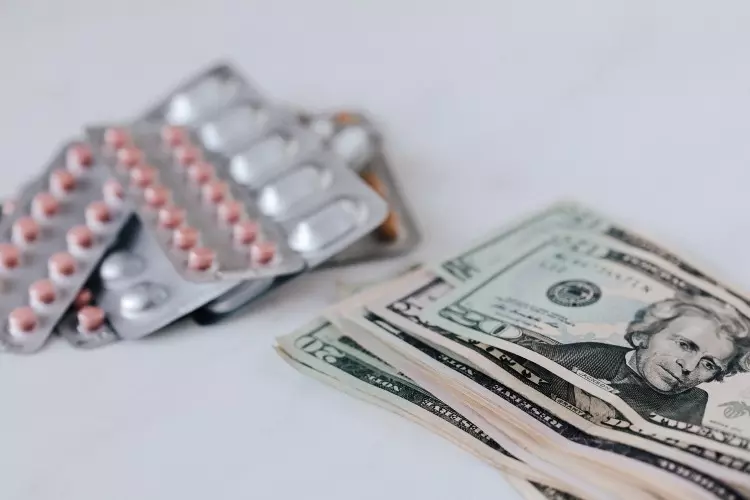
Photo Credit: by Pexels.com
Vitamin B12 plays a vital role in our health, but it’s also a vitamin our body cannot make. We must obtain Vitamin B12 from external sources to ensure adequate levels, as it plays an essential role in the formation of our blood cells.
A little science on the mechanism of vitamin B12 absorption in the body:
Absorption of vitamin B12 is a two-part process. You can think of the process similar to a seed that needs the proper soil to grow.
In order for Vitamin B12 to be absorbed, a specific protein must bind with it to allow its transport and absorption. This specific protein is called Intrinsic Factor and is present in the stomach. Intrinsic factor is produced by the parietal cells in the stomach. Once Intrinsic factor binds to vitamin B12 in the stomach, the complex travels to the lower part of the small intestine to be absorbed into the bloodstream. Vitamin B12 is necessary for red blood cells to form and grow. If the body does not make enough intrinsic factor, not enough will bind to vitamin B12 and it can't be absorbed. This results in a type of vitamin B12 deficiency called pernicious anemia. Blood cells need vitamin B12 to mature properly and if we don't have enough, the red blood cells fail to mature and appear abnormally large. Their large size is a result of the bone marrow's inability to regulate the size of the blood cells due to failure of DNA division in the cells causing a type of anemia called pernicious anemia.
Pernicious anemia can lead to symptoms such as shortness of breath, indigestion, loss of appetite, palpitations, and fatigue. Other tell-tale signs include nervous system symptoms such as brain fog, numbness or tingling in the hands and feet or sometimes depression and anxiety.
What causes Vitamin B 12 deficiency?
A few factors can affect it:
1-Surgical removal or bypass of the stomach can cause a lack of intrinsic factor due to removal of the cells which produce intrinsic factor. The stomach usually secretes intrinsic factor more than the required amount for B12 absorption, so only a considerable loss in intrinsic factor secretion capacity results in a B12 deficiency.
2-Strictly Vegan diet: Vegans are more likely to be vitamin B12 deficient because plants do not produce vitamin B12, which is mainly found in meat, eggs, and dairy products.. Therefore, it is vital that vegans find alternative sources of vitamin B12 to remain in the best health. Some good choices would include:
● Fortified plant-based milk
● Nutritional yeast
● B12 supplements
It is important to note that two subgroups of vegans are at particular risk of B12 deficiency: long-term vegans who avoid common fortified foods (such as raw food vegans or macrobiotic vegans) and breastfed infants of vegan mothers whose own intake of B12 is low.
3-Crohn's disease: Individuals with this condition sometimes have part of their small intestine removed making absorption of vitamin B12 difficult.
4-Advanced Age: Some older individuals develop atrophy of the gastric lining and have a hard time making intrinsic factor. Vitamin B12 Deficiency: Causes, Symptoms, and Treatment
Natural Solutions and Remedies
Here are some options if one chooses to take a more natural approach. These include:
● Increase intake of vitamin B12-rich foods: The foods containing vitamin B12 are primarily animal meat, fish, eggs, and dairy. Vegetarians, people who are pregnant or nursing, and others who are at risk of deficiency may need to take supplements or eat fortified foods to meet their vitamin B12 needs. Vitamin B12 Foods: 12 Great Sources
● Take vitamin B12 supplements: Vitamin B12 supplements can be found in many forms, including tablets, capsules, and injections. A healthcare professional can help determine the best form and dosage for you. CandaPharmacyOnline.com offers Vitamin B12 tablet and Vitamin B12 injection – both are prescription required items. Here’s a link to purchase:
Buy Vitamin B12 Tablets Online – Cyanocobalamin Canada
Buy Vitamin B12 Injection Online – Cyanocobalamin Canada
● Eat fortified foods: Many foods, such as breakfast cereals, plant-based milks, and nutritional yeast, are fortified with vitamin B12. Check the nutrition label to see how much vitamin B12 is in each serving.
● Probiotics: Some studies suggest that taking probiotics may help improve vitamin B12 absorption in the gut. However, more research is needed to confirm this.
● Sun exposure: Some research suggests that exposure to sunlight may help increase vitamin B12 levels in the body. However, this is not a reliable source of vitamin B12 and should not be relied on as the sole source.
● Vitamin B12 nasal spray: This is a newer treatment option that involves spraying vitamin B12 into the nose. It is not as effective as injections or oral supplements, but it may be an option for people who have trouble with injections or oral supplements.
It is important to always consult with your doctor about the best treatment options available.
###
Your email address will not be published. Required fields are marked with *.